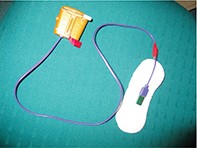Peer Reviewed
Feature Article Paediatrics
Management of childhood enuresis
Abstract
Enuresis is a common childhood complaint. Management of this condition is based on the accurate assessment of the underlying cause and applying the most appropriate therapy.
Key Points
- Childhood enuresis (bedwetting) is a common complaint occurring in up to 18.9% of school-aged children.
- It can affect a child’s self-esteem, behaviour, relationships and performance at school.
- Monosymptomatic nocturnal enuresis (bedwetting without daytime symptoms) should be distinguished from non-monosymptomatic enuresis (bedwetting with daytime voiding symptoms) as the management differs for each of these conditions.
- Causes of childhood enuresis include impaired cortical arousal coupled with reduced bladder capacity and/or nocturnal polyuria.
- Alarm therapy is the most effective therapy for managing monosymptomatic nocturnal enuresis, with desmopressin as second-line therapy.
Purchase the PDF version of this article
Already a subscriber? Login here.

